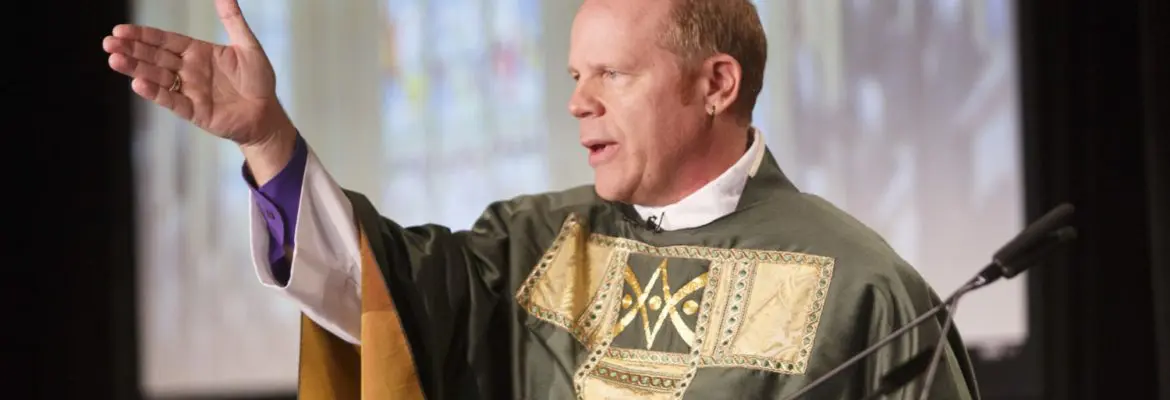
Dear Friends in Christ,
Last Sunday, Mary and I had the opportunity to bring my parents with us to worship at St. James Cathedral. It was the first time in almost two years that my mother and father were able to attend a service in person. It was a heartwarming and moving liturgy. It was a homecoming of sorts. A longing had been sufficiently suffonsified. During these long months of the pandemic, being together has been one thing we’ve longed for. We’ve missed the opportunity to connect in person with our extended family members, friends, colleagues, neighbours, and parish communities. As more and more of us have been vaccinated, and as restrictions have gradually eased, many of us have been able to have those opportunities again – to share a meal with friends, to hug our parents and grandparents, to worship together in our church buildings. And we continue to long for the opportunity to do so more and more fully.
The experiences of the past months have not only taken their toll on our common life; they have also taken a toll on the lives and bodies of some members of our community more than others. Much of the produce that shows up in our supermarkets has been tended and harvested by temporary migrant workers toiling on our farms, far from their families. Many of our online purchases show up on our doorsteps, packed and delivered by a multitude of workers who are considered too essential to work from home but not valued enough to make a living wage or be given sick days and other protections. The lack of affordable housing and the overcrowding of shelter systems have erupted in visible encampments of unhoused people, yet efforts to provide new affordable housing is often met by obstacles in the form of neighbourhood opposition. The confirmation of the bodies of Indigenous children on the grounds of former residential schools has pulled back the veil from our sense of national identity. And underlying all of this, we have seen how the health of the biotic community – the lands and waters that nourish and replenish us – are threatened by our human activities.
This time of revealing is uncomfortable. We have been forced to look at our social and economic systems and see the human and ecological costs, like the valley of dry bones in the book of Ezekiel. Can these bones live? Is there hope for new life, a way to rebuild our community in a way that brings us together and enables all to flourish, as God desires?
This is the question being posed at this year’s diocesan Outreach and Advocacy Conference, “Re-Membering and Re-Making Community,” on Saturday, Oct. 30. The Rev. Gerlyn Henry will address this question in her keynote speech, and different aspects of this theme will be explored in eight different workshops (four in the morning and four in the afternoon). At the conclusion of the day, participants are invited to come back together to reflect on what they’ve heard and learned, and on how they will take that forward in their own parishes and neighbourhoods.
The conference will be held fully online and there is no charge for registration. To learn more about the various workshops offered, and to register, please visit www.toronto.anglican.ca/outreachconference. (Please note that participants must register separately for each of the day’s sessions.)
I hope you will join me at this year’s conference as we explore this theme together and remember God’s promise: “I will put my spirit within you, and you shall live, and I will place you on your own soil; then you shall know that I, the Lord, have spoken, and will act,” says the Lord.
Yours in Christ,
The Rt. Rev. Andrew Asbil
Bishop of Toronto